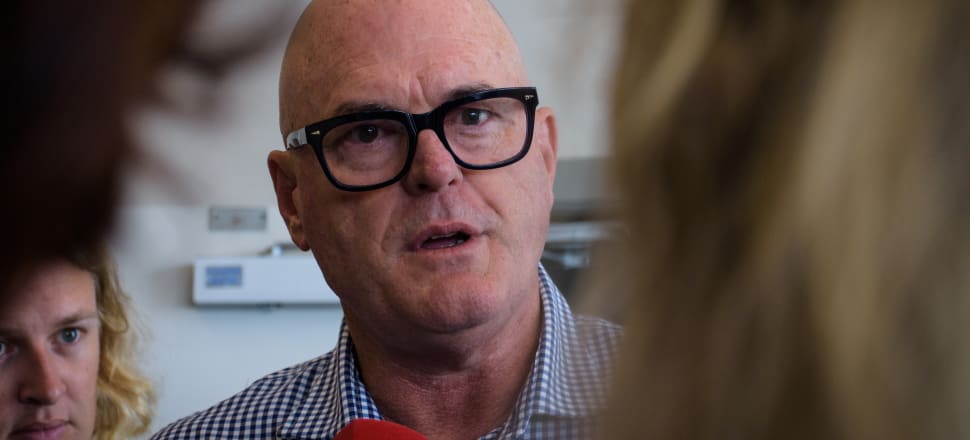
Cross-partisan 'lip service' voids the need for a conservative, climate-concerned movement even in the wake of Auckland's disastrous floods, argues Marc Daalder
Analysis: The climate-fuelled catastrophic flooding in Auckland last week isn't likely to shift voter preferences given the electorate is already disengaged from the nuts and bolts of climate policy, political scientists say.
An unexpected phenomenon rattled Australian politics during last year's general election, when independent candidates running on conservative platforms, coupled with ambitious climate policies, won a range of urban seats. The so-called teal wave followed Australia's devastating 2019/20 bushfire season, but experts say the Auckland flood isn't likely to produce the same effect here.
READ MORE:
* Christopher Luxon absent as Chris Hipkins steps into the floodlights
* The differences between NZ and Australia are becoming too great
* How Australia's new government could benefit NZ business
The key difference is the political context, University of Canterbury political scientist Bronywyn Hayward told Newsroom.
"We haven't got that same level of polarisation, particularly around urban emissions - we have it around agriculture - but we don't have it in the urban setting. Climate, and the reality of living with increasing disasters, is going to be an issue for Auckland now, going into the election, alongside living costs," she said.
"National will be working quite hard to make sure that it's a party that is receptive to that, as will the Labour Party."
In Australia, Anthony Albanese's Labour was running against the Scott Morrison-led coalition government, which made a point of its obstinance on climate. This left conservative voters who were still worried about climate change with nowhere to go.
Here, all of New Zealand's major parties at least say climate change is real and emissions reductions are sorely needed. Labour, National and the Greens all endorsed the country's domestic targets during a parliamentary debate (ACT said they went too far and Te Pāti Māori said they didn't go far enough) and the big two parties also back the more stringent Paris target.
There may be disagreements about how to achieve those targets, but the fundamental need to achieve them is widely accepted. National may move even more strongly into the climate space in the lead-up to the election, Hayward theorised.
"I sensed a subtle but significant positioning shift over break with the appointment of Todd Muller [as climate change spokesperson] and Christopher Luxon being more assertive on climate change."
Lara Greaves, an associate professor of politics at Victoria University of Wellington, said repeated surveys had shown voters were concerned about climate change.
"I've seen ideas around that more people will vote based on the climate based on these floods, but it's hard to know what percentage of people will shift. We put extra questions in the New Zealand Election Study in order to monitor environmental attitudes over time, because we just can see it becoming a bigger and bigger issue for people's vote," she said.
Green Party co-leader James Shaw said, in Australia last year, "Climate change went from being an issue you couldn't win an election on to an issue you couldn't win an election without .... I don't think it would be unreasonable that you might see a kind of similar move here, as well."
Greaves also agreed with Hayward about the differences in the political environment between Australia and New Zealand.
"All of our parties at least pay lip service to climate change and the environment. They definitely have different views on how to tackle climate change. There are very few people on our full political spectrum that deny climate change exists or that it's a problem," she said.
This means there's not likely to be much of a constituency for a teal movement, since National is effectively a teal party at least in rhetoric. That's the other key point, Greaves says - most voters who care about climate change make their decisions on rhetoric, not policy.
"I would say that most voters don't have the time to really look into a lot of climate change policies in a lot of depth. Trust is the big variable there. How much do voters trust their parties, trust their representatives to take action? As long as the representatives are saying that they're taking action, I think that really soaks up a lot of the middle voter who is quite concerned about climate change."
So while voter concern around climate may increase as a result of the floods, it wouldn't necessarily induce any party switching if voters' preferred parties are nailing the rhetoric.
That means parties which might angle for a teal vote, like TOP, may struggle to bring people onside by criticising National's climate policies. As long as Luxon can keep saying the right thing, the majority of climate-concerned conservatives will probably stick with him, as long as they trust him over the relative unknowns who might spearhead a teal movement.
At least right now, Luxon is making the right noises.
On Saturday, while Auckland Mayor Wayne Brown was arguing that any assertions of a climate link to the floods were "unhelpful", Luxon said global warming had clearly exacerbated the event.
"We have seen increasingly extreme weather events. We can point to the facts and to the data. And it's important that, as we think about a future, we actually learn to adapt to it and make sure we've got the infrastructure to support it," he said.
This week, Muller also indicated a willingness to work with Shaw on upcoming managed retreat legislation. This will sort out what to do about existing infrastructure in areas threatened by climate change - who has to move and who pays, mostly.
That extends National's dedication to climate action beyond mere lip service, though there are still big questions about how they'll meet the climate targets, with few policies announced so far.
Either way, Greaves said, it may not matter to the median voter.







